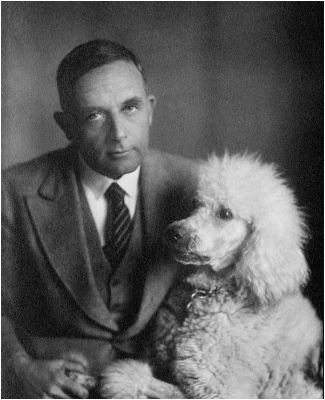Why was Otto Heinrich Warburg Awarded the Nobel Prize for Physiology or Medicine in 1931?
Otto Heinrich Warburg: Nobel Laureate for Discovering the Role of Cellular Respiration (1931)
Otto Heinrich Warburg, a German physiologist, and biochemist, made groundbreaking contributions to the field of cellular respiration during the early 20th century. Renowned for his discoveries related to the metabolism of cells, Warburg played a pivotal role in unraveling the mechanisms underlying energy production within cells. In recognition of his exceptional research, he was awarded the Nobel Prize for Physiology or Medicine in 1931. This article explores the reasons behind Warburg’s prestigious honor and highlights his remarkable scientific breakthroughs.

Investigation of Cellular Respiration:
Otto Heinrich Warburg’s Nobel Prize was primarily awarded for his pioneering investigations into cellular respiration, specifically focusing on the process of oxygen consumption by cells. In the 1920s, Warburg conducted extensive studies on the metabolism of cancer cells and observed distinct differences in their respiration compared to normal cells.
Warburg discovered that cancer cells exhibit an increased rate of glycolysis, the breakdown of glucose, even in the presence of oxygen, a phenomenon now known as the “Warburg effect.” He proposed that the alteration in cellular respiration was a fundamental characteristic of cancer cells, providing insights into the metabolic changes associated with cancer development.
Significance in Cancer Research:
Warburg’s findings had a profound impact on cancer research. His observations laid the foundation for the understanding that alterations in cellular metabolism are closely linked to cancer development. The Warburg effect, characterized by increased glycolysis and decreased mitochondrial respiration in cancer cells, became a hallmark of cancer metabolism.
Warburg’s research provided a basis for further investigations into the metabolic reprogramming of cancer cells and its potential implications for cancer diagnosis and treatment. His work emphasized the importance of understanding the metabolic differences between cancer cells and normal cells, offering new avenues for therapeutic targeting.
Contributions to Biochemistry:
In addition to his work on cancer metabolism, Warburg made significant contributions to the field of biochemistry. His studies on enzymes and the electron transport chain provided insights into the fundamental processes involved in cellular respiration and energy production.
Warburg’s research led to the identification and characterization of key enzymes involved in glycolysis and oxidative phosphorylation. His investigations into the role of coenzymes, such as nicotinamide adenine dinucleotide (NAD+), deepened our understanding of the biochemical reactions occurring within cells.
Recognition and Legacy:
Otto Heinrich Warburg’s Nobel Prize for Physiology or Medicine in 1931 celebrated his exceptional scientific achievements and the transformative impact of his research on cellular respiration. His discoveries regarding the metabolic changes in cancer cells revolutionized our understanding of cancer metabolism and its potential implications for cancer diagnosis and treatment.
Warburg’s work continues to inspire cancer researchers and metabolic scientists, shaping our understanding of the metabolic alterations associated with various diseases. His contributions to biochemistry and cellular metabolism remain significant, providing a foundation for further investigations into energy metabolism and the role of mitochondria in health and disease.
Otto Heinrich Warburg’s Nobel Prize in 1931 recognized his groundbreaking discoveries in the field of cellular respiration and cancer metabolism. His investigations into the metabolic alterations of cancer cells, as well as his contributions to biochemistry, have had a lasting impact on cancer research and our understanding of cellular metabolism. Warburg’s legacy serves as a testament to the transformative power of scientific inquiry and the pursuit of knowledge in advancing our understanding of human health and disease.




